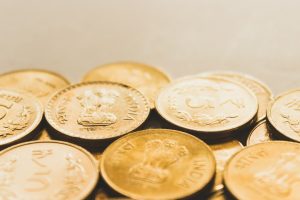Forex, short for foreign exchange, is a decentralized global market where currencies are traded. It is the largest financial market in the world, with a daily trading volume of over $5 trillion. The forex market was not founded by an individual or a group of individuals, but rather evolved over time as a result of various economic, political, and social factors.
The origins of forex can be traced back to ancient times when traders exchanged goods and services for other goods and services. The first recorded use of currency as a means of exchange dates back to the 7th century BC when the Lydians, a civilization in what is now western Turkey, minted the first coins. These coins were made from electrum, a naturally occurring alloy of gold and silver.
Over time, as trade between different regions and countries increased, the need for a standardized medium of exchange became more pressing. This led to the development of paper money, which was first used in China during the Tang dynasty (618-907 AD). Paper money was easier to carry and transport than coins, and it quickly became the preferred means of exchange in many parts of the world.
The modern forex market as we know it today began to take shape in the early 20th century. One of the key events that helped to shape the market was the establishment of the gold standard in the late 19th century. Under the gold standard, currencies were pegged to the value of gold, which was considered a stable and reliable store of value.
However, the gold standard was abandoned during World War I, and the interwar period saw a rise in currency speculation and volatility. The Bretton Woods Agreement of 1944 sought to address these issues by establishing a new international monetary system based on the US dollar. Under this system, other currencies were pegged to the value of the dollar, which in turn was pegged to the value of gold.
The Bretton Woods system lasted until 1971, when the US government abandoned the gold standard and allowed the value of the dollar to float freely. This led to the creation of the modern forex market, where currencies are traded freely and their values are determined by supply and demand.
While the forex market was not founded by a single individual, there are several people who played key roles in its development. One of the most notable of these is John Maynard Keynes, a British economist who was one of the architects of the Bretton Woods system. Keynes believed that currency markets should be tightly regulated to prevent speculation and instability.
Another important figure in the history of forex is George Soros, a Hungarian-American investor who is widely regarded as one of the most successful currency traders of all time. Soros made a fortune by betting against the British pound in 1992, in a move that is now known as Black Wednesday. His actions helped to destabilize the pound and led to the UK withdrawing from the European Exchange Rate Mechanism.
In conclusion, the forex market was not founded by a single individual, but rather evolved over time as a result of various economic, political, and social factors. The market has a long and fascinating history, and has played a key role in shaping the global economy. While there are many individuals who have played important roles in the development of forex, the market itself is the result of the collective actions of millions of traders and investors around the world.


